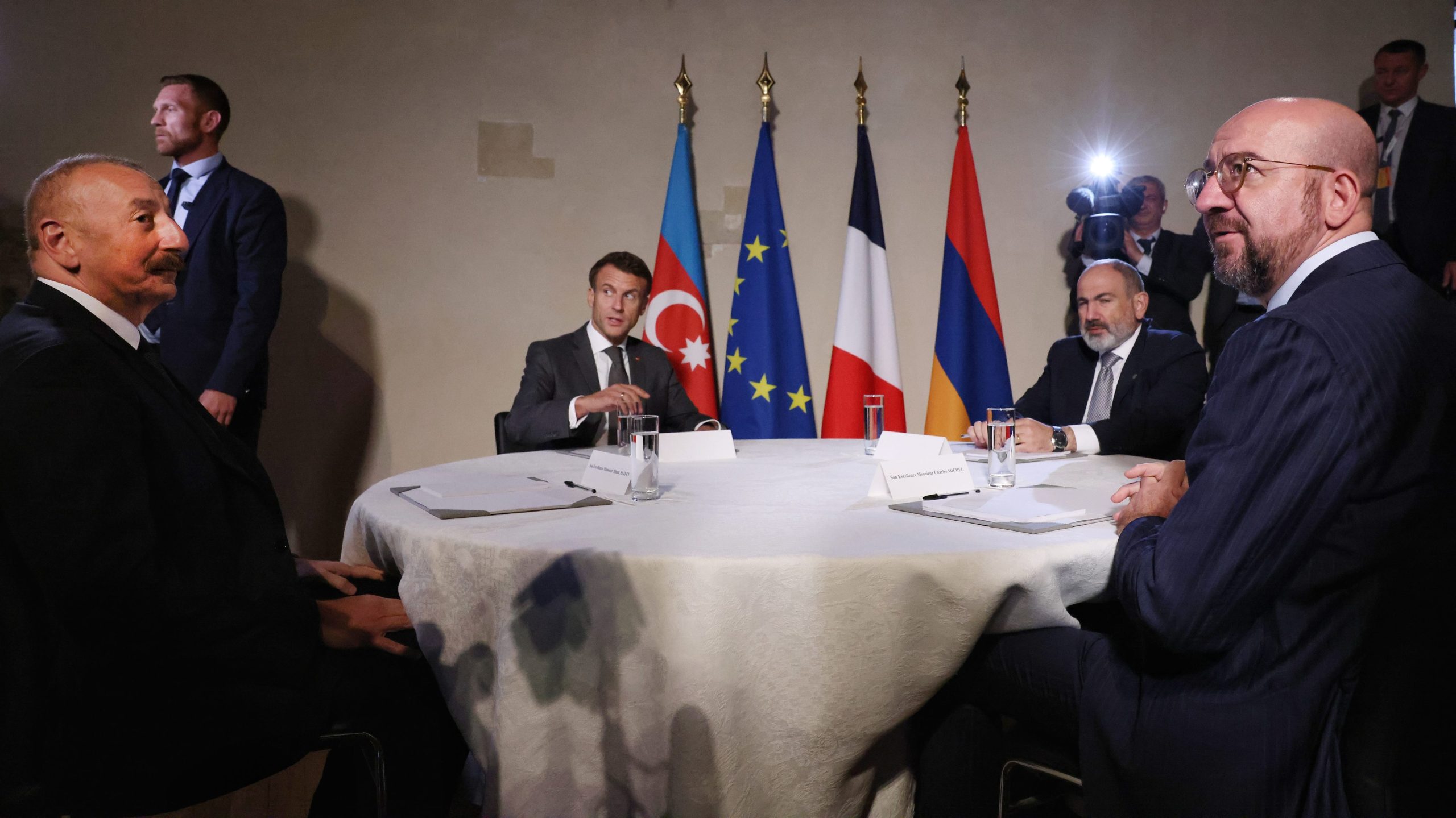France’s Multifaceted Engagement in the South Caucasus

France’s footprint in the South Caucasus now spans lucrative commercial ventures, deep‑ening defence ties and a fast‑moving geopolitical drama that increasingly disquiets Armenia. French industry is courting Azerbaijan with headline investments—a proposed $800 million Thales Alenia Space communications satellite and TotalEnergies’ long‑standing stakes in the Absheron gas field—while French diplomats and generals are simultaneously bolstering Armenia with air‑defence batteries, joint training programmes and a draft strategic‑partnership treaty. Until recently that odd duality was awkward but manageable; Baku profited from French technology and cash, Yerevan drew comfort from French weapons and moral support, and Paris claimed its engagement on both sides could foster eventual compromise.
Events in 2025 have upended that fragile balance. In March Azerbaijan and Armenia announced they had finished drafting a peace treaty, yet immediately stalled over Baku’s demand that Yerevan strip from its constitution any hint of territorial claims. Skirmishes resumed along the border, Azerbaijan raised its defence budget to offset Armenia’s new French equipment, and officials in Yerevan began warning that civilian assets such as the planned Thales satellite could be repurposed for surveillance against them. Even without proof of malign intent, the dual‑use precedent is real: French components were uncovered in the Turkish‑made Bayraktar TB2 drones that devastated Armenian forces during the 2020 Nagorno‑Karabakh war, and Canadian‑built optical systems—supplied by an Ontario subsidiary of the French‑friendly defence giant L3Harris—had to be embargoed after their battlefield role was exposed.
Into this already tense picture bursts Baku’s newly public proposal to host a NATO facility in the Khachmaz region, hard up against the Russian border. Azerbaijani media presents the project as a logical extension of years of cooperation under the Individual Partnership Action Plan and its successor programme with the Alliance, arguing that Moscow’s waning clout and “external threats” leave Baku no choice but to seek stronger Western deterrence. The suggested base would almost certainly involve Turkish oversight, reinforcing Ankara’s role as Azerbaijan’s closest military partner and, crucially, a full NATO member. While President Ilham Aliyev still brands Azerbaijan a non‑aligned state, regular NATO staff visits in May and July 2025 and the prospect of alliance infrastructure metres from Dagestan tell a different story.
For France the proposal is diplomatically delicate, but for Armenia it looks outright menacing. A fully fledged NATO footprint on Azerbaijani soil would tilt the regional military balance further toward Baku just as Yerevan is being pressed to concede on constitutional language. Armenian officials fear that any satellite bandwidth or data relay capacity France supplies to Azerbaijan could plug directly into NATO‑standard command‑and‑control networks housed at Khachmaz, giving their neighbour a qualitative edge that no quantity of French‑made surface‑to‑air missiles can neutralise. The symbolism is equally corrosive: a NATO flag flying beside the Caspian would signal to Armenian voters that the West’s strategic bet is shifting toward their adversary, undermining domestic support for painful compromises in the peace talks.
Canada’s place in the chain—home to eight million Francophones and a bustling cluster of French defence subsidiaries—illustrates how technology and language ties intersect. Ottawa’s 2021 export ban on WESCAM cameras did not entirely sever the pipeline of dual‑use know‑how, and every fresh revelation of Western components in Azerbaijani systems heightens Armenian suspicions that alliance partners preach restraint while enabling Baku’s battlefield gains.
Paris now confronts an unenviable triple challenge. It wants the satellite deal and energy revenue from Azerbaijan, it has publicly pledged to defend Armenia’s security, and it must stay aligned with NATO strategies that may soon include a base on Russia’s doorstep. Unless France imposes stricter end‑use monitoring, insists on progress in the peace negotiations as a condition of further arms or space cooperation, and exercises real diplomatic leverage to keep the Khachmaz project from destabilising the wider region, its balancing act will appear less like nuanced statecraft and more like cynical double‑dealing.
